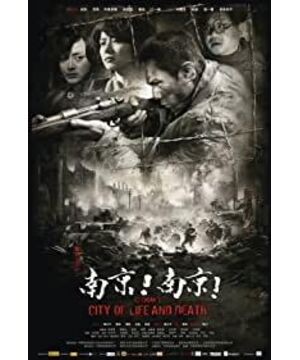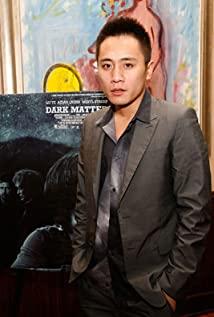Wu Qingyuan was viciously suppressed by the then Beninfang Hidezai for a long time in the struggle years of his youth. Years later, when someone asked about this koan case, the 90-year-old old chess sage just gave a four-word evaluation to Xiuzai: "He's a bad guy."
When I saw this interview in "Sports Weekly", I felt like I was hit in the head. , and then enlightened: We always feel that only Mengtong with low cognitive ability can make simple judgments such as "he is a bad person" about a complex person. With a little life experience, we all know how to describe a person as complex as possible, in order to be as accurate and profound as possible. What's more, Wu Qingyuan's life was colorful and vigorous, and the grievances and grievances between him and a heavyweight such as Beninfang Hideya, I really want to describe it in detail, I'm afraid it's enough to write a book, right?
However, Wu Qingyuan only has four words: "He is a bad person." - After going through vicissitudes and a lot of experience, he can see mountains or mountains and water or water in this way. No matter how many words there are, they can only be explained from these four words; no matter how many threads there are, they can only be derived from these four words. These four characters express the fundamentals, the messy head, and the starting point for all further elaborations.
Therefore, in my later life, whenever there is complexity and confusion, I always have to step back and ask myself: "In a word, what is the essence of this incident?"
2. What is the essence
of the Nanjing Massacre? - is bestiality.
What is the nature of the Japanese army? - is the bad guy.
This is the final conclusion. All reflection, if a different conclusion is deduced, is fart.
This is also the initial starting point. All reflections, if they deviate from this starting point, are also farts.
No matter how much the word "right and wrong" has been abused, I will still say: right and wrong should not be confused.
3.
The Japanese army's perspective is a useful attempt. I'm in favor of taking the Japanese army as a human rather than a beast. The Japanese army was not inherently evil, and rightfully so. Even the Japanese army itself was a victim of the massacre, which makes the same sense.
But you must not show the Japanese army so warm, so full of compassion, and even finally let the two Chinese people go and commit suicide. All in all, in a group of Japanese soldiers who can use killing as a game for entertainment, a role like Kadokawa can exist, but how can he be the protagonist? Kadokawa is too "normal", normal to not extreme. And would it be a group of "normal" people who made such abnormal atrocities as the Nanjing Massacre?
how? Is it superficial to make a bad guy a bad guy? Does "abnormal" not reflect "human nature"? What is human nature, human nature can be both the best and the worst; human nature will change from normal to unrecognizable. Murder can kill HIGH. Isn't this bloody history the most alienated and ugliest side of human nature? If you dare not (or cannot) face the evil of human nature, how can your so-called goodness of human nature be hypocritical.
In the same way, it's okay not to deliberately show atrocities like killing and rape. But if a person who doesn't know anything about the Nanjing Massacre goes to see this movie, you can't make him think that the scope of the massacre is limited to the remnants of the national army and refugee camps after watching it, and he doesn't realize that it was a death. A massacre of 300,000 people. You can "don't shoot like this", but you can never "don't shoot".
History is only true and false, it doesn't matter how deep or shallow it is. The real history is there, if you don't have the ability to shoot it well, how can you distort history to fulfill your "profoundness"? Even the most basic right and wrong are so confused, no matter how clever you are, Lu Chuan, you will still be an idiot after all.
So the end of this film is natural: it pretends to be deep but it turns out to be ambiguous and suspicious, and it uses force everywhere but it turns out to be weak.
4.
The MM, who went to the movies with me, took out the tissue from about ten minutes after the movie started, until the end of the movie. When I got out of the movie theater, I asked her how she felt about the movie, and she blushed and couldn't tell why. I smiled and said:
"I guess your current psychology, do you see it right? On the one hand, you cried from the beginning to the end, and your mood fluctuated; on the other hand, you didn't think the movie was well made. So what? It's hard for you to admit it. If you say it's good, you don't think it's good; if you say it's bad, your eyes are still red, and you're embarrassed..."
She flatly denied it, but I guess she has There are not a few people with this mentality.
It's obvious that the filming is not good, even if you cry, there is nothing embarrassing to admit. When a group of remnants shouted "China will not perish", and when Rabe was about to leave, he fell to his knees... I also cried. With such a theme and such a film, it is too easy to provoke the emotions of the Chinese people. Just say it was disappointing after crying.
"Nanjing! Nanjing! ' is not a bad film, but it is more disappointing than any bad film. Even if "The Promise" turned into a piece of shit, everyone laughed and laughed, and it was nothing but distressed about the ticket money. But "Nanjing! Nanjing! ", you are moving on the theme of the Nanjing Massacre, you are sorry for the two exclamation marks in your title. Of course, this theme does have its difficulties, and none of the previous films with the same theme can be called a success. Perhaps we can indeed say: how to view history is still controversial, and now is "not the time to discuss Nanjing". But this "Nanjing! Nanjing! The question is not how to view history at all, but whether to respect history. A movie that plays tricks everywhere, but goes wrong at the root.
Please ask any Chinese child who is a little bit more sensible, and they will tell you: "Japanese devils are bad people."
With 300,000 dead souls on top, no one will kuso this movie like kuso "Promise". It's so disappointing that I don't even have anger anymore.
View more about City of Life and Death reviews











